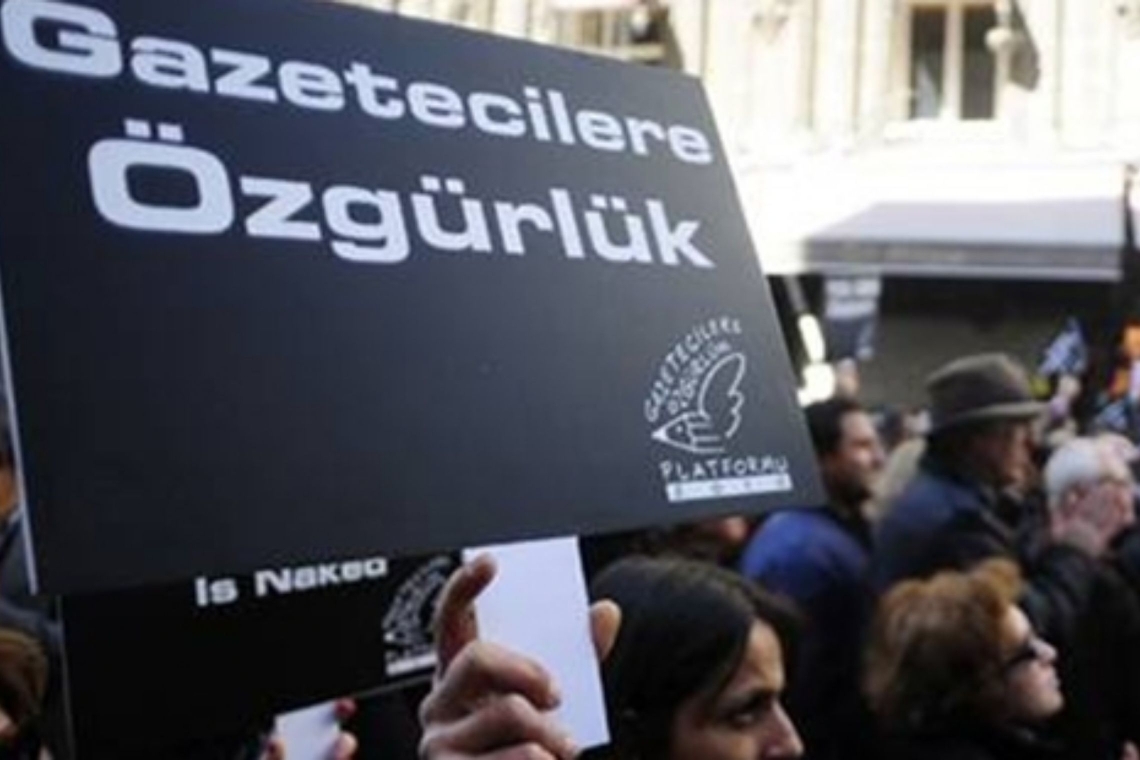Turkish prosecutors have filed charges against seven journalists detained in a November 2024 operation in the central province of Eskişehir, accusing them of aiding a terrorist organization based on their news reporting, social media activity, and receipt of freelance payments.
The indictment, prepared by the Eskişehir Chief Public Prosecutor’s Office and later transferred to Istanbul due to a lack of jurisdiction, targets journalists Berfin Atlı, Gülcan Dereli, Kemal Taylan, Serap Güneş, Suzan Demir, Tuğçe Yılmaz, and Erdoğan Alayumat—who is represented by the Media and Law Studies Association (MLSA). The case will be heard by a High Criminal Court in Istanbul, though a trial date has not yet been set.
The journalists face up to 10 years in prison on charges of “aiding an armed terrorist organization,” a standard charge in Turkey’s anti-terror law often used against journalists, rights defenders, and opposition figures. According to the indictment, freelance fees deposited into their bank accounts and their social media posts were interpreted as material support for the outlawed Kurdistan Workers’ Party (PKK), which is considered a terrorist organization by Turkey, the European Union, and the United States.
The investigation stems from a November 26, 2024 operation launched by the Eskişehir Chief Public Prosecutor’s Office. The detentions were based on claims that the journalists were carrying out activities on behalf of the PKK under the guise of journalism. Prosecutors cited a Financial Crimes Investigation Board (MASAK) report, along with records from unified payment services, as evidence that a person identified only by the initials A.Y.—who reportedly worked in a managerial role for the publications Politikart and Yeni Özgür Politika, both based in Germany and Turkey—had transferred funds to individuals allegedly part of the PKK’s media network in Turkey.
According to the indictment, these funds and related social media activity indicated that the journalists were “within the media structure of the PKK/KCK terrorist organization,” and that they “carried out actions and activities on behalf of the terrorist organization under the guise of so-called journalism.” The text also claims that the journalists contributed articles to Yeni Özgür Politika and Politikart, which prosecutors argue operate under the influence of the PKK and serve as platforms for its propaganda.
Human rights groups and press freedom organizations have long criticized Turkey for its aggressive use of anti-terror legislation against journalists. The country remains one of the world’s top jailers of media workers, according to rankings by Reporters Without Borders and the Committee to Protect Journalists.



